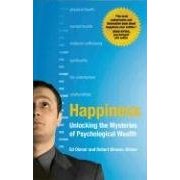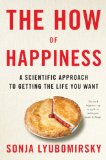The presidential candidates agree to the rules of the debate including time limits. A green light turns yellow and then red to let both men know that their time is up for answering that particular question. The candidates do what any reasonable person would expect: they run over the time limit a little bit, then a little more. (Of course.) It’s in their own interest to do so – especially given that they wouldn’t want to be upstaged by the other guy. But the organizers are caught completely off-guard by this predictable situation. It’s as though no one thought about this possibility, and there is no backup plan. The only thing the moderator can come up with is to chide the candidates repeatedly that they had agreed to the rules. Every time he does so he takes time and focus away from the discussion and the issues, which starts to seem a bit absurd after awhile. At one point one of the candidates makes a suggestion for him to raise his hand to get their attention.
Then, as if to highlight the lack of good planning, when the debate ends and the candidates naturally move toward each other to shake hands, the moderator stops them and asks them to move out of the way because he can’t see the teleprompter on the wall behind them.
This actually happened last night at the second presidential debate. It wasn’t a Saturday Night Live sketch.*
How could the organizers have failed to plan for likely outcomes? I really don’t know, but it has the appearance of not thinking things through, which is the point I want to make.
Thought experiment
Albert Einstein used “thought experiments” to think through the ramifications and logical consequences of certain initial conditions. It was a truly outstanding example of rational thought.
Why not try to do something similar in planning? Some things just work better with a good plan. And sometimes it’s worth taking time to think through some of the “what ifs?” It depends on how important something is, of course. But sometimes people spend a lot of time on things that actually matter less (and bring them less happiness and meaning) than other things. Try this: It can be a useful exercise to consider how you’d want to be remembered when you’re gone.
If you already know what needs to be done, lay out the process. Mentally walking through each step can be revealing, even without applying genius-level intellect to problems and solutions.
What if we’re talking about something bigger, and laying out the steps is premature? Don’t underestimate the power of a dream or vision, and its ability to inspire.
The magic ratio
The Appreciative Inquiry approach points out the value of identifying the “positive core” rather than utilizing only criticism, or being dragged down by hopelessness, irony, or negativity. Also, researchers have looked at the optimum ratio of positive to negative in interactions. Beginning with the landmark investigations of psychologist John Gottman, using what he called “the magic ratio” (5:1), Gottman and colleagues were able use analysis of positive to negative interactions in 15-minute conversations to predict divorce 10 years later with 94% accuracy. Psychologist Donald O. Clifton encourages highlighting what coworkers or employees do well instead of what needs improvement, and discovering the benefits of supporting their valuable contributions. But research discovered that when the ratio gets too high, about 13:1, effectiveness declines. That situation was out of touch and unrealistic. So reduce negative feedback, but don’t eliminate it.
A very useful contribution positive psychology might make to certain kinds of business or personal planning is looking at your personal strengths. This could be strengths in relation to your job, or in relation to your role in the personal task you’re planning for. It could be the strengths of those involved in some joint business or personal task. It could even be the strengths of your business or project team as a whole. Playing from your strengths rather than focusing primarily on weaknesses has been shown to work better.
Founder of modern “positive psychology” Martin Seligman says that using our strengths “makes work more fun, transforms a job or a career into a calling, and increases flow.
*If it had been SNL, the absurdity would have been taken much further: the moderator might have been asked to wave both arms over his head, jump up and down, and “do something more to get our attention”; “just throw a few crumpled up pieces of paper,” an eraser (chalk flies on impact from side of head), “try your shoe,” “use this taser” (then: “don’t tase me, bro!”), “here’s a harpoon gun” (“God knows I had worse in Nam”).
![[Circle]](http://www.meaningandhappiness.com/pictures/GoldCircle36i.png)



